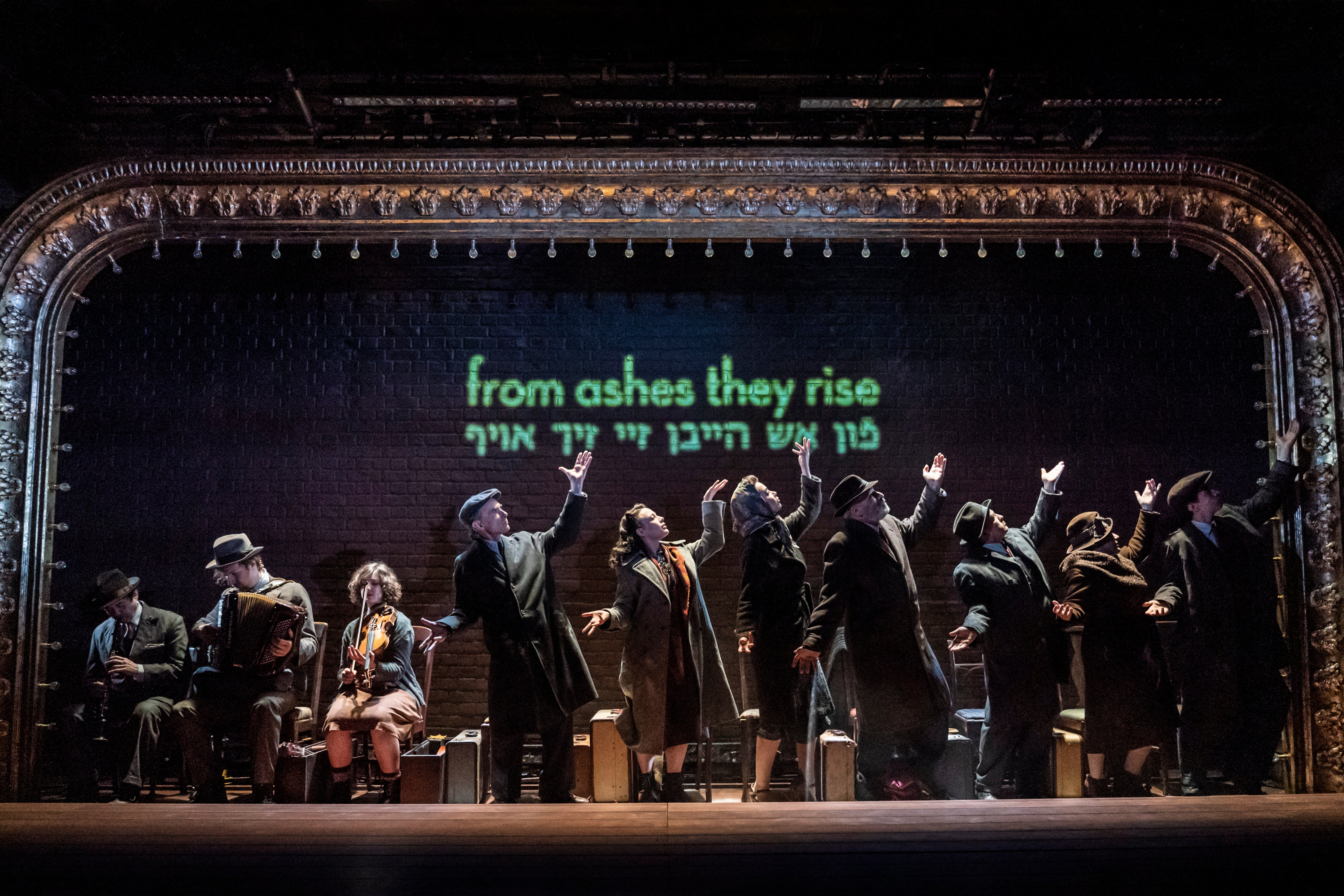Indecent review – An extraordinary, ambitious production
Paula Vogel’s play preserves and reinvigorates the legacy of one of the most scandalised plays of the 20th century

In 1907, Polish playwright Sholem Asch was advised to burn the manuscript for his new play God of Vengeance. The story of two Jewish women in love – one the virginal daughter of a brothel owner, the other a prostitute – it caused a scandal before it had even been near a stage. Asch refused to burn it, instead touring the play throughout Europe, and eventually America, where its entire cast, along with its producers, was arrested and jailed for obscenity. Asch himself eventually disowned the play, but nearly a century on, Paula Vogel’s Indecent preserves and reinvigorates its legacy.
This extraordinary production at London’s Menier Chocolate Factory, directed by Rebecca Taichman – which is making a triumphant return after it was shut down just two days into its run in March 2020 – charts God of Vengeance’s journey over the course of half a century. We travel from its disastrous first table read in 1907, through its European tour, its scandalised spell on Broadway, and onward to the dreadful fate of some of its Jewish actors in Nazi-occupied Poland. The small cast take on multiple roles, though there is a consistency to who plays whom: Molly Osborne and Joseph Timms play “all the brides, all the grooms, the writers, the socialists”, while Alexandra Silber and Cory English are “all of the vamps and all of the vice, the scarred and the schemers”.
As if that wasn’t ambitious enough, there is a three-piece klezmer band on stage, providing all-singing, all-dancing musical numbers throughout. In one particularly dazzling song, about the assimilation of Jewish people arriving in America in the early 20th century, the cast sing in subtitled Yiddish – “What can you do? It’s America!” – as they shed their shtetl clothes and pull off their ringleted peyes. It’s a strange, bittersweet sequence, and ludicrously catchy with it.
The play begins quietly, though. The cast and musicians – who were sat silently in a row of chairs as the audience members took their seats – stand up slowly, dust pouring from their sleeves, and begin to dance. The words “from ashes they rise” are projected behind them. From the very start, Indecent is offered up as an act of remembrance, defiance and reclamation – a play not just about antisemitism, censorship and queer female desire, but the ritual of storytelling.
Vogel, who won a Pulitzer in 1998 for How I Learned to Drive, first discovered Asch’s play in the Seventies, as a college student searching for representations of herself in literature. In every line of its dialogue, you can feel how much it means to her – though she is not blind to the arguments made against it at the time. She gives both perspectives the space to be heard. “You are pouring petrol on the flames of antisemitism,” says Peretz, founding father of Yiddish literature. “This is not the time.” “When!” shouts Asch. “When will be the right time?”

The cast is tremendous. As the young Asch, Joseph Timms has an earnest, fidgety presence not unlike Ben Whishaw’s – though his demeanour gradually grows heavier as the playwright becomes more jaded. Peter Polycarpou is brilliant as characters both violent and avuncular, while Molly Osborne and Alexandra Silber have a subtle, symbiotic chemistry as various young lovers.
That chemistry is vital to perhaps the most powerful scene of the play – one that plays out repeatedly, in fragments, from the very start. It is Asch’s protagonists, Rifkele and Manke, kissing in the rain. In the programme notes, Vogel writes: “To this day I have not read as beautiful a scene between two women, one that accorded their love the purest desire of Romeo and Juliet on the balcony”.
Vogel waits until the end before she reveals the rain scene in all its glory. We see it for a few seconds at the start, then enacted by two awkward men during that table read, then in various rehearsals. We see the fallout when it is cut from the script for the Broadway production – “My Manke is no longer a woman in love. She is an evil procuress” – and we see it played out in the attic of a Polish ghetto in 1943, its actors barely strong enough to embrace. By the time it is unleashed in its full power, in Yiddish, water pouring from the ceiling, it is a moment of pure electricity.
‘Indecent’ runs at Menier Chocolate Factory until 27 November



Join our commenting forum
Join thought-provoking conversations, follow other Independent readers and see their replies
0Comments